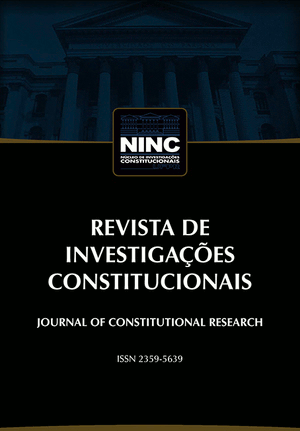Abstract
This study will analyze the type of political reform proposed by the STF from the identification of the Court’s understanding of the empirical and normative problems of the reformed institutes, its concern with the governability or representativeness of the political system, and whether the proposed changes had the intended effect. Finally, considerations will be made about the relationship between constitutional law, the political system and the theory of constitutional dialogues. The article concludes that the STF’s reformist stance can be illustrated by three phases conditioned by the country’s political situation and driven by different jurisprudential regimes: 1) non-reformist and pro-governability during the period of democratic consolidation (1988-2001), anchored in a positivist hermeneutics; 2) progressive reformist, concerned with political representation during the period of democratic stability (2002-2015) and animated by neoconstitutionalism and 3) dialogical conservatism backed by the thesis of constitutional dialogues ratifying reforms in favor of governability (2016 -).
Keywords:
Political reform; Federal Court of Justice; Constitutional Phases; Unwanted Effects; Constitutional interpretation
